#HI IM SORRY THIS TOOK SO LONG
Explore tagged Tumblr posts
Text
GHOSTSOAP // "you sweet fucker" MINICOMIC!!!




#cod mw2#john soap mactavish#simon riley#simon ghost riley#call of duty mw2#ghostsoap#john mactavish#soapghost#ghostsoap comic#ghost x soap#soap x ghost#jesus this took me so long to make#also sorry if ive been inactive here juggling 2 social media accounts is hard when i have finals to worry about#might have to again but come say hi on my twitter! BUT ill try to be more active here when im done with finals#ANYWAY YEAH SO MUCH HAPPENING THANK YOU FOR READING
6K notes
·
View notes
Text

hellooo danandphilgames buddies!! happy belated 10 year (more like 5 but shhh) anniversary :-)
#dan and phil#daniel howell#phil lester#amazingphil#phanart#dnp art#IM SORRY IT TOOK ME SO LONG TO POST THIS HERE IVE BEEN MEANING 2 DO IT FOREVER#theres soooooo much i can say abt this piece... such a journey.... what a ride....#i gave this 2 them as a puzzle and had them sign a lil print of it and they were SOOOO SO SWEET WAHHH#i luv them sm.... im so grateful 4 their kind words it rly meant the world 2 me ;___;; <3333333#also dan was like “good luck to us doing that puzzle on the bus!” as i was walking away fkjhsdfhj#anyways anyways ok sry back 2 the pic!! theres SOOOO many parts thatd b fun 2 point out and explain but itd b too long for tags AAAAA#would any1 b interested if i made like... a thread on twt or smth mayhaps...? or reblog this with a read more underneath...?#ive only ever just posted art and dipped idk how non-tag yapping works despite me being on this site since i was like. 12 kdsjhfksdh#my art#if ur reading this hi ily i hope ur having a good day!! :-) <3
604 notes
·
View notes
Text

please accept his beverage
its all he has 😭😭😭
#imma be real i did this so long ago i forgot his name#took me 10 damn mins to remember this miserable creatures name#im so sorry kit i love you i prommy#magma art#kit the fennec#kitsumani the fennec#<see i totally wont forget it again (lies)#digital art
217 notes
·
View notes
Text
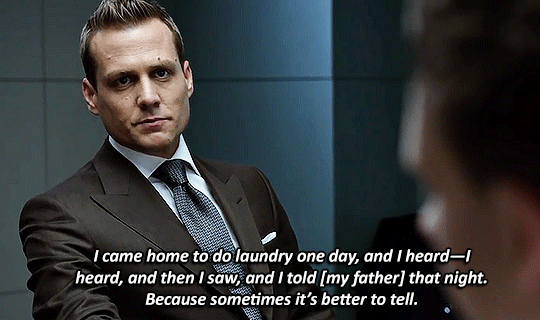
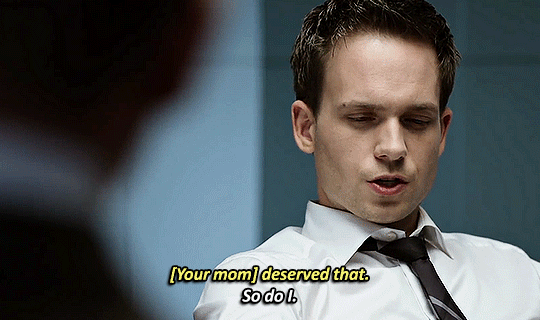

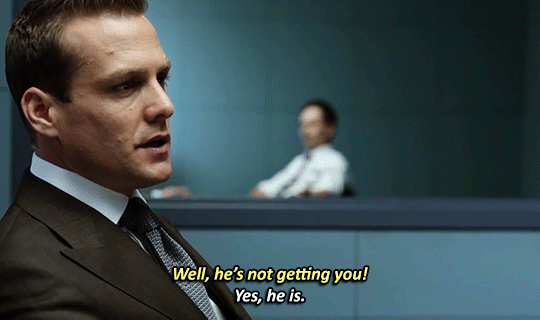
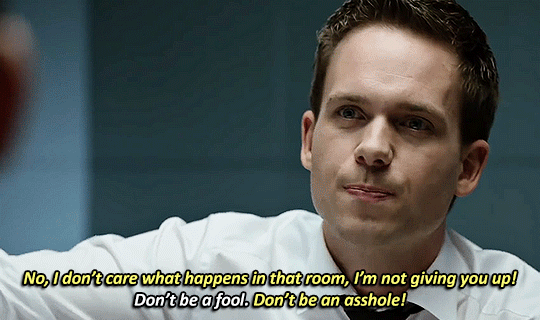
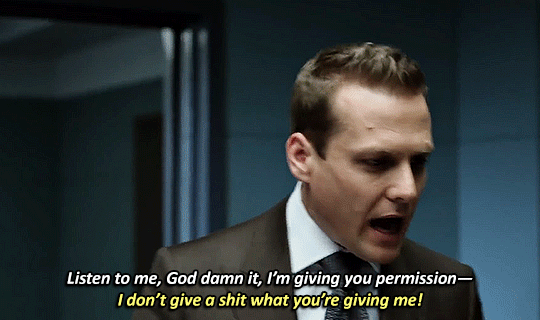


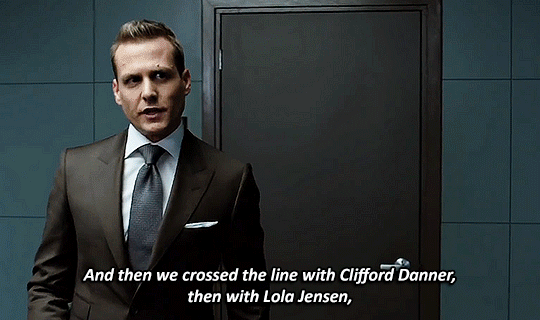
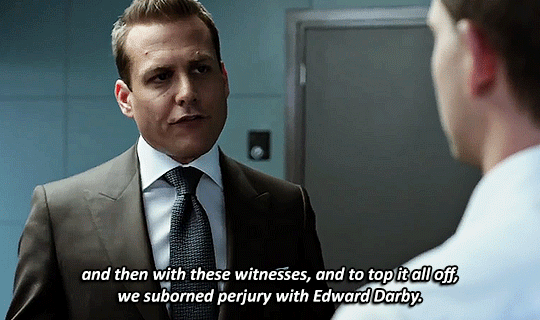
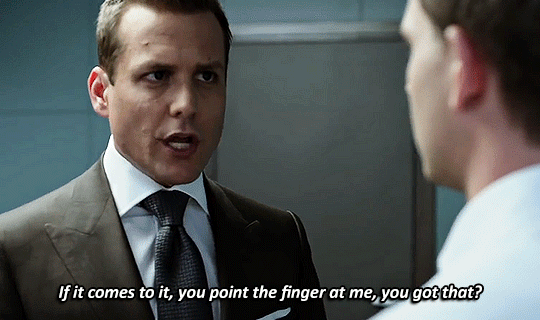
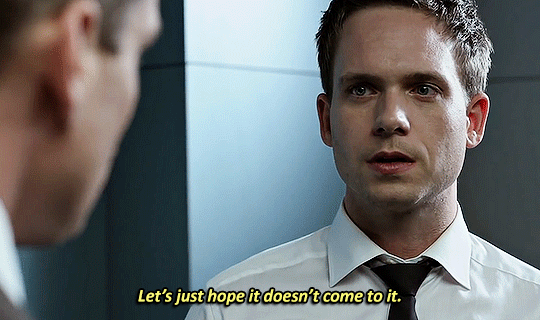
SUITS -> 3x16 “No Way Out”
#IM SORRY ITS SO LONG LMAO. I NEED THE WHOLE CONVERSATION CUS ITS SO CRAZY#took me a whole two days cus the scene is so long lol#anyway . HARVEY LITERALLY ADMITS HE BECAME HIS MOTHER!!!!#AND THEN TELLS MIKE ITS ALL HIS FAULT AND MIKE SHOULD BLAME HIM!!!#suitsedit#marvey#marveyedit#suits usa#suits tv#patrick j adams#gabriel macht#amanda.doc#amanda.gif#suits#also yeah these are a little pixelated i KNEW i shouldn’t have cropped and resized at the same time but i don’t care enough to fix it lmao#suitsposting#userpunk
748 notes
·
View notes
Text
patience being tested. being forced by a bizarre unfortunate situation to adhere to university requirement technicality by taking this simple basic elementary "introduction to environmental history" class.
this class is from facilitators/program which do, like, "history of the American frontier" or "history of fishing and hunting" and still basically subscribe to that old-school twentieth-century idealization and celebration of characters like Teddy Roosevelt and reverence for a mythical arc-of-history-bent-towards-justice narrative of the often-clumsy but ultimately-benevolent US federal government and its mission to "save nature" through the miracle of "sustained yield," while heroic federal land management agencies and "heritage" institutions lead to way, staffed by exceptional individuals (appeals to nostalgia for the frontier and an imagined landscape of the American West; ego-stroking appeals to flattering self-image that center the environmentalist or academic). where they invoke, y'know, ideas like "ecology is important because don't you enjoy cross-country skiing in The Woods with your niece and nephew? don't you like hunting and fishing?" which makes it feel like a time capsule of appeals and discourses from the 1970s. and it invokes concept of "untouched wilderness" (while eliding scale of historical Indigenous environmental relationships and current ongoing colonial violence/extractivism). but just ever-so-slightly updated with a little bit of chic twenty-first-century flair like a superficial land acknowledgement or a reference to "labor histories" or "history from below," which is extra aggravating when the old ideologies/institutions are still in power but they're muddying the water and diluting the language/frameworks (it's been strange, watching words like "multispecies" and "Anthropocene" over the years slowly but surely show-up on the posters, fliers, course descriptions, by now even appearing adjacent to the agri-business and resource extraction feeder programs, like a recuperation or appropriation.) even from a humanities angle, it's still, they're talking at me like "You probably didn't know this, but environmental history is actually pretty entangled with political and social events. In fact, we can synthesize sources and glean environmental info from wacky places like workers' rolls in factories, ship's logs, and poetry from the era." and i'm nodding like YEP.
the first homework assignment is respond to this: "Define and describe 'the Anthropocene'. Do you think 'the Anthropocene' is a useful concept? Why or why not?" Respond in 300 words.
so for fun, right now in class, going to see how fast i can pull up discussion of Anthropocene-as-concept solely from my old posts on this microblogging site.
---
ok, found some
---
I think that the danger in any universal narrative or epoch or principle is exactly that it can itself become a colonizing force. [...] I’m suspicious of the Anthropocene as concept for the very reason that it subsumes so many peoples, nations, histories, geographies, political orders. For that reason, I think ideas like the Anthropocene can be a useful short-hand for a cluster of tangible things going on with the Earth at the moment, but we have to be very careful about how fluid and dynamic ideas become concretized into hegemonic principles in the hands of researchers, policymakers, and politicians. There’s so much diversity in histories and experiences and environmental realities even between relatively linked geographies here in Canada [...]. Imagine what happens when we try to do that on a global scale - and a lot of euro-western Anthropocene, climate change and resilience research risks doing that - eliding local specificities and appropriating knowledge to serve a broader euro-western narrative without attending to the inherent colonial and imperial realities of science and policy processes, or even attending to the ways that colonial capitalist expansion has created these environmental crises to begin with. While we, as a collective humanity, are struggling with the realities of the Anthropocene, it is dangerous to erase the specific histories, power-relations, political orders that created the crisis to begin with. So, I’m glad that a robust critique of the Anthropocene as a concept is emerging.
Text by: Words of Zoe Todd, as interviewed and transcribed by Caroline Picard. “The Future is Elastic (But it Depends): An Interview with Zoe Todd.” 23 August 2016.
---
---
---
The Great Acceleration is the latest in a series of human-driven planetary changes that constitute what a rising chorus of scientists, social scientists, and humanists have labeled the Anthropocene - a new Age of Humans. [...] But what the Anthropocene label masks, and what the litany of graphs documenting the Great Acceleration hide, is a history of racial oppression and violence, along with wealth inequality, that has built and sustained engines of economic growth and consumption over the last four centuries. [...] The plantation, Sidney Mintz long ago observed, was a “synthesis of field and factory,” an agro-industrial system of enterprise [...]. Plantation legacies, along with accompanying strategies of survival and resistance, dwell in the racialized geographies of the United States’ and Brazil’s prison systems. They surface in the inequitable toxic burdens experienced by impoverished communities of color in places like Cancer Alley, an industrial corridor of petrochemical plants running along the Mississippi River from New Orleans to Baton Rouge, where cotton was once king. And they appear in patterns of foreign direct investment and debt servitude that structure many land deals in the Caribbean, Brazil, and sub-Saharan Africa [...]. [C]limatologists and global change scientists from the University of London, propose instead 1610 as a date for the golden spike of the Anthropocene. The date marked a detectable global dip in carbon dioxide concentrations, precipitated, they argue, by the death of nearly 50 million indigenous human inhabitants [...]. The degradation of soils in the tobacco and cotton-growing regions in the American South, or in the sugarcane growing fields of many Caribbean islands, for example, was a consequence of an economic and social system that inflicted violence upon the land and the people enslaved to work it. Such violent histories are not so readily evident in genealogies that date the Anthropocene’s emergence to the Neolithic Revolution 12,000 years ago, the onset of Europe’s industrial revolution circa 1800, or the Trinity nuclear test of 1945. Sugarcane plantations were already prevalent throughout the Mediterranean basin during the late middle ages. But it was during the early modern era, and specifically in the Caribbean, where the intersection of emerging proto-capitalist economic models based on migratory forced labor (first indentured servitude, and later slavery), intensive land usage, globalized commerce, and colonial regimes sustained on the basis of relentless racialized violence, gave rise to the transformative models of plantations that reshaped the lives and livelihoods of human and non-human beings on a planetary scale. [...] We might, following the lead of science studies scholar Donna Haraway and anthropologist Anna Tsing, more aptly designate this era the Plantationocene. [...] It is also an invitation to see, in the words of geographer Laura Pulido, “the Anthropocene as a racial process,” one that has and will continue to produce “racially uneven vulnerability and death." [...] And how have such material transformations sustained global flows of knowledge and capital that continue to reproduce the plantation in enduring ways?
Text by: Sophie Sapp Moore, Monique Allewaert, Pablo F. Gomez, and Gregg Mitman. "Plantation Legacies." Edge Effects. 22 January 2019. Updated 15 May 2021. [Bold emphasis added by me.]
---
---
---
Geologists and other scientists will fight over [the definition of the beginning start-date of the Anthropocene] in scientific language, seeking traces of carbon dioxide that index the worst offenses of European empire which rent and violated the flesh, bodies, and governance structures of Indigenous and other sovereign peoples in the name of gold, lumber, trade, land, and power. [...] The stories we tell about the origins of the Anthropocene implicate how we understand the relations we have with our surrounds. In other words, the naming of the Anthropocene epoch and its start date have implications not just for how we understand the world, but this understanding will have material consequences, consequences that affect body and land.
Text by: Heather Davis and Zoe Todd. On the Importance of a Date, or Decolonizing the Anthropocene. ACME An International Journal for Critical Geographies. December 2017. [Bold emphasis added by me.]
---
---
---
From Aime and Suzanne Cesaire, C. L. R. James, Claudia Jones, Eduoard Glissant, through Sylvia Wynter, Christina Sharpe, and so many others, critical anticolonial and race theory has been written from the specific histories that marked the Black Atlantic. [...] Glissant also reminds us, secondly, of how cunning the absorptive powers of [...] liberal capitalism are - how quickly specific relations are remade as relations-erasing universal abstractions. [...] This absorptive, relations-erasing universalism is especially apparent in some contemporary discourses of […] liberalism and climate collapse - what some call the Anthropocene - especially those that anchor the crisis in a general Human calamity which, as Sylvia Wynter has noted, is merely the name of an overdetermined and specific [White] European man. […] [T]he condition of creating this new common European world was the destruction of a multitude of existing black and brown worlds. The tsunami of colonialism was not seen as affecting humanity, but [...] these specific people. They were specific - what happened to them may have been necessary, regrettable, intentional, accidental - but it is always them. It is only when these ancestral histories became present for some, for those who had long benefitted from the dispossession [...], that suddenly the problem is all of us, as human catastrophe.
Text by: Elizabeth Povinelli. “The Ancestral Present of Oceanic Illusions: Connected and Differentiated in Late Toxic Liberalism.” e-flux Journal Issue #112. October 2020.
---
The narrative arc [of White "liberal humanism"] [...] is often told as a kind of European coming-of-age story. […] The Anthropocene discourse follows the same coming-of-age [...] script, searching for a material origin story that would explain the newly identified trajectory of the Anthropos […]. Sylvia Wynter, W.E.B. DuBois, and Achille Mbembe all showed how that genealogy of [White subjecthood] was [...] articulated through sixteenth- through nineteenth-century [historiographies and discourses] in the context of colonialism, [...] as well as forming the material praxis of their rearrangement (through mining, ecological rearrangements and extractions, and forms of geologic displacements such as plantations, dams, fertilizers, crops, and introduction of “alien” animals). […] As Wynter (2000) commented, “The degradation of concrete humans, that was/is the price of empire, of the kind of [Eurocentric epistemology] that underlies it” (154).
Text by: Kathryn Yusoff. “The Inhumanities.” Annals of the American Association of Geographers, Volume 11, Issue 3. November 2020.
---
---
---
As Yarimar Bonilla suggests in regard to post-Irma-and-Maria Puerto Rico, “vulnerability is not simply a product of natural conditions; it is a political state and a colonial condition.” Many in the Caribbean therefore speak about the coloniality of disaster, and the unnaturalness of these “natural” disasters [...]. Others describe this temporality by shifting [...] toward an idea of the Plantationocene [...]. As Moore and her colleagues write, “Plantation worlds, both past and present, offer a powerful reminder that environmental problems cannot be decoupled from histories of colonialism, capitalism, and racism that have made some human beings more vulnerable [...].” [W]e see that contemporary uneven socioecologies associated with the rise of the industrial world ["the Anthropocene"] are based [...] also on the racialized denial and foreshortening of life for the sacrificial majority of black, brown, and Indigenous people and their relegation to the “sacrifice zones” of extractive industry. [...] [A]ny appropriate response to the contemporary climate emergency must first appreciate its foundations in the past history of the violent, coercive, transatlantic system of plantation slavery; in the present global uneven development, antiblackness, and border regimes that shape human vulnerability [...] that continues to influence who has access to resources, safety, and preferable ecologies [...] and who will be relegated to the “plantation archipelagoes” (as Sylvia Wynter called them) [...].
Text by: Mimi Sheller. “Thinking Beyond Coloniality: Toward Radical Caribbean Futures.” Small Axe (2021), 25 (2 (65)), pages 169-170. Published 1 July 2021. [Bold emphasis added by me.]
---
---
---
Indigenous genocide and removal from land and enslavement are prerequisites for power becoming operationalized in premodernity [...]; it was/is a means to operationalize extraction (therefore race should be considered as foundational rather than as periphery to the production of those structures and of global space). [...] Wynter suggests that we […] consider 1452 as the beginning of the New World, as African slaves are put to work on the first plantations on the Portuguese island of Madeira, initiating the “sugar-slave” complex - a massive replantation of ecologies and forced relocation of people […]. Wynter argues that the invention of the figure of Man in 1492 as the Portuguese [and Spanish] travel to the Americas instigates at the same time “a refiguring of humanness” in the idea of race. [...] The natal moment of the 1800 Industrial Revolution, […] [apparently] locates Anthropocene origination in […] the "new" metabolisms of technology and matter enabled by the combination of fossil fuels, new engines, and the world as market. […] The racialization of epistemologies of life and nonlife is important to note here […]. While [this industrialization in the nineteenth century] […] undoubtedly transformed the atmosphere with […] coal, the creation of another kind of weather had already established its salient forms in the mine and on the plantation. Paying attention to the prehistory of capital and its bodily labor, both within coal cultures and on plantations that literally put “sugar in the bowl” (as Nina Simone sings) […]. The new modes of material accumulation and production in the Industrial Revolution are relational to and dependent on their preproductive forms in slavery […]. In 1833, Parliament finally abolished slavery in the British Caribbean, and the taxpayer payout of £20 million in “compensation” [paid by the government to slave owners for their lost "property"] built the material, geophysical (railways, mines, factories), and imperial infrastructures of Britain and its colonial enterprises and empire. [...] A significant proportion of funds were invested in the railway system connecting London and Birmingham (home of cotton production and […] manufacturing for plantations), Cambridge and Oxford, and Wales and the Midlands (for coal). Insurance companies flourished [...]. The slave-sugar-coal nexus both substantially enriched Britain and made it possible for it to transition into a colonial industrialized power […]. The slave trade […] fashioned the economic conditions (and institutions, such as the insurance and finance industries) for industrialization.
Text by: Kathryn Yusoff. "White Utopia/Black Inferno: Life on a Geologic Spike". e-flux Journal Issue #97. February 2019. [Bold emphasis added by me.]
#sorry for being mean#instructor makes podcasts about cowboys HELP ME#and he recently won a New Business award for his startup magazine covering Democrat party politics in local area HELP#so hes constantly performing this like dance between new hip beerfest winebar coolness and oldfashioned masculinity#but hes in charge of the certificate program so i have to just shut up and keep my head down for approximately one year#his email address is almost identical to mine and invokes enviro history terms but i made mine long before when i was ten years old#so i could log in to fieldherpforum dot com to talk about enviro history of distribution range changes in local reptiles and amphibians#sir if you read my blog then i apologize ive had a long year#and i cant do anything to escape i am disabled i am constantly sick im working fulltime i have NO family i have NO resources#i took all of this schools graduate level enviro history courses and seminars years ago and ran the geography and enviro hist club#but then left in final semester because sudden hospitalization and crippled and disabled which led to homelessness#which means that as far as any profession or school is concerned im nobody im a retail employee#i was doing conference paper revisions while sleeping on concrete vomiting walking around on my cane to find outdoor wifi#and im not kidding the MONTH i got back into a house and was like ok going back to finish the semester the school had#put my whole degree program and department in moratorium from lack of funding#and so required starting some stuff from scratch and now feel like a hostage with debt or worsening health that could pounce any moment#to even get back in current program i was working sixteen hours a day to pay old library fines and had to delicately back out of workplace#where manager was straight up violently physically abusive to her vulnerable employees and threatened retaliation#like an emotional torturer the likes of which i thought existed only in cartoons#and the week i filed for student aid a massive storm had knocked out electricity for days and i was clearing fallen tree debris#and then sitting in the dark in my room between job shifts no music no phone no food with my fingers crossed and i consider it a miracle#sorry dont mean to dramatize or draw attention to myself#so actually im happy you and i are alive
134 notes
·
View notes
Text

me n moze say good morning to the world !!! ᕙ( •̀ ᗜ •́ )ᕗ
art by @rabbbitseason of course <3
#— ⚘( ၴႅၴ moevie.#🐦⬛🐕 .#moevie.#<-#hehe i took inspo from kai’s rb of my mb:>#MY FIRST MOEVIE COMM#this is queued#im asleep (at least i should be by the time this is posted) but it’s a mystery as to how i will fall asleep knowing i would have to#close my eyes and not actively stare at this for the rest of my life#full factory reset i really don’t know what i would even say to this 🥹 im just#things i would do for bitti : anything! i cannot think of something i wouldn’t do for her#i gave her the most cursed ref known to mankind and she came up with this im so 🥹 thank you so much … your art blows me away every time ….#i may pass out seeing him in your style … the way you did his hands and he’s so big#this is me -> ໒꒰ྀི o̴̶̷̤ ̯o̴̶̷̤ ꒱ྀི১ at this HSJDNCN aaaaaa 🥹#i will also state the very obvious and say that bitti is such a pleasure to work with ajsnxnkck ….. please im on my knees#when i saw this- my stomach literally flipped inside out and my ears were ringing .. and my heart was beating a million beats per second#if bitti’s comms were open for eternity & i won the lottery- i would commission so many mozes ….. the world would be full of bitti’s mozes.#^ though that sounds terrible for bitti … im so sorry#i swear that won’t happen i would never do that to you#he is sooooo yum in your style (severe & outrageous understatement)#but what i can do is stare at this all day#THANK YOU BITTI UEUEJJSJS 🥹🥹🥹 I HOPE UR PILLOWS R ALWAYS COLD !!!#not even aventurine’s shield can protect me from the 100000000 damage i took from this /pos#such a shield doesn’t exist in the hsr realm or the real world !!!#IM KIND OF ANGRY THAT I KNOW THERES NOTHING I CAN SAY TO EXPRESS HOW I FEEL !!!!! WHAT COULD I SAY >:#WHAT AN ODD FEELING WHERE I AM reduced to my knees but from positive emotions alone …#im so dizzy /pos let me stop here this is already so long omg 🥹#edit: dude /gn my screen time is gonna skyrocket because im still staring with such a dopey smile on my face ahsndnxkc gosh im happy :’) th#thank you so much bitti …. this means so much to me#i literally can not put into words how much this has made my entire year :’)) im so soft im so happy
235 notes
·
View notes
Text
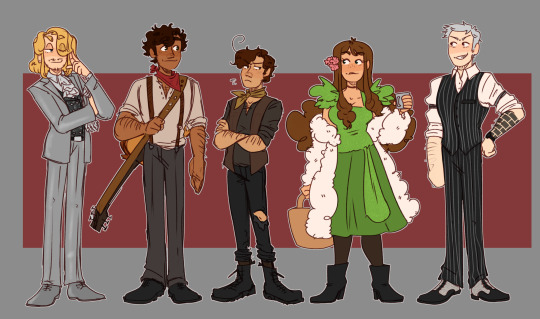
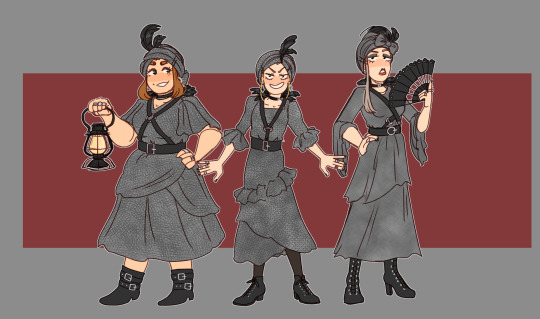

finally sat down and cranked this shit Out on my day off lmfao CAST LIST GO!!
new additions: francis as hermes, and feliks and natalya joining emma as the two other fates! plus the. chorus of olya, elise, alfred, matthew, and arthur.
i didnt draw the orchestra but we have: roderich on piano, tolys on trombone, heracles on guitar, vash on bass, joão (portugal) on cello, henri (luxembourg) on violin, and abel on percussion! ludwig isnt playing anyone, he's in charge of backstage and making sure everyone is ready for their cues 👍👍
#hetalia world stars#hetalia au#hadestown production au#hws france#hws spain#hws romano#hws hungary#hws prussia#hws belgium#hws poland#hws belarus#im not tagging anyone else sorry im being lazy. lmfao.#my art#ignore how i got lazy with the chorus outfits i got so fucking bored of drawing the same thing hhhhghgh.#freddy and mattie and olya are doing any lifting that needs to be done because theyre 💪💪💪#anyway i couldnt decide whether i wanted francis or alfred as hermes and thats why this took so long to finalize lmao#francis felt too Obvious. but his personality fits better than fred. and i also realized its my au i can do what i want! so! francis it is#anyway time for me to rest my hand and wrist bc ive been drawing for like. 6+ hours lmfao
223 notes
·
View notes
Note
okay but hear me out… upper moon 2 Leona meeting Yuko his wife again after some years when he chose to become and upper moon and she was sent to kill him😭
I can't elaborate I will cry.

#in fact I DID cry#oh leona who never get to feel comfortable at his own home finally remembering why he longed for it so much#daily dose of angst#anyway 💅#demon slayer | au! ver.2#THANK YOU FOR THE ASK DARLING💜💜💜#AND IM SORRY I TOOK ME SO LONG😭😭😭
99 notes
·
View notes
Note
you should totally draw 80s boyfriends haha,,,

ah yes, my favorite ship dynamic: trash goblin man x sunshine bf
HC: Felix is very, very supportive when it comes to Turbo's races. Even if he wins every lap and likes to be a snob about it, Turbo actually gets super flustered at Felix's compliments because he's so genuine about it.
I love 8-bit yaoi.
#sorry this took long anon 🙏#this looks kinda awkward i am NOT good at doing ship art#coralscribs#wreck it ralph#wir#wir turbo#fix it felix#80s boyfriends#hammertastic#i can fix him#<<< LOLL forgot who came up w/ this but thats genius im tagging it#also YAYYY IM PROUD HOW I DREW FELIX#had a hard time with his hat tho so i took that out entirely
324 notes
·
View notes
Note
have u drawn reki before cause u should ☆

havent drawn him properly before so now i have
#beep.#im so sorry this took so long lmaoo#for some reason tumblr made it so i could only see this ask if i begged and pleaded??#its the oldest one i have#it just disapears sometimes#his hands kinda gross#hope u like him lmaooo#IM STILL PLANNING ON DRAWING BOTH OF THEM#ive just been busy.#and i gotta do a new composition...#when the fuck does new sk8 come out#i should do smth for then#tomisonline#fanart#art#my art#sk8#sk8 anime#sk8 reki#sk8 the infinity#sk8 fanart#reki kyan
114 notes
·
View notes
Note
keep fighting the good fight against this weird misconception that vik is somehow stoic and unemotional, bestie 🫡 cause idk where the hell people picked that up lol
thank you!!! fandom is always gonna fandom, reducing characters to two-dimensional tropes to make them mix-and-matchable. it's especially unfortunate when the characters we're given in Arcane are so rich and nuanced. the best antidote is to go back and rewatch the source material imo lol.
thanks for enjoying my tags also!! I used to write actual meta many years ago but at some point lost my nerve or lost the time. now it lives in the tags. I don't know many people in the jayvik fandom here, it seems mostly active on twitter, but I'm glad to be noticed by at least a couple people here :) your blog is great!!
#sorry i took so long to respond whoops#arcane#hexcoreviktor#jayvik#im also gonna add to this that when i see viktor portrayed with emotion it's usually anger which. to me also is ooc#like they show/write him yelling and being cranky or rude and i just. he only raises his voice like ONCE to someone in the show#and it's not even yelling.#it was 'absolutely not!' to mel's request about the weapons.#others have mentioned before that he's pacifist. and yeah. like he's not just fucking angry and rude to people.#he can be snarky and sassy and have dry humor but he's not angry all the time wtf??#he doesnt have some snap temper.#maybe you havent met a scientist with high standards or a perfectionist before but like. *waves*#stop writing viktor as an emotionless robot - it's literally part of his arc that in trying to remove the subjectivity of emotion#he goes even more emotionally bonkers in s2 lmao#but at the same time stop writing him like he's consistently impatient and pissed off at everyone and everything esp jayce#when jayce does kind things for him he's polite and grateful and appreciates it ffs#idk maybe it's because i relate to viktor a lot that i don't see why his personality is so hard to understand
107 notes
·
View notes
Note
what if Y/N could see Dust San's Papyrus & like ghosts & spirit's in general


They’re gossip buddies 🥰
When Papyrus finds out that you can see him, he’s elated to finally have someone new to talk to - don’t get him wrong, he loves his brother! But his interactions with Dust have been his only interactions for years at this point, so having someone new to dialogue with is like finding water in a desert. A very sock-filled, dusty desert. He wants to talk about anything and everything, desperate for any form of contact, and as a result he’ll probably come off as a bit intense at first; he evens out a little as time goes on and he settles into the new norm, though. He’s glad he can talk to you about what he’s experienced and all of the batshit things he’s seen as a spectator - gossip buddies!
He also likes to give you advice, especially related to his brother. He thinks you’re good for him, and knows he likes you, but he worries about what Dust will be like as a partner. He understands completely how unstable Dust is and doesn’t want you getting caught in a bad situation or some sort of crossfire, both because he’s desperate for company and because of his integrity and value system.
In the end, he decides that the best course of action is to help his brother become an Acceptable Datemate and to be there for you if you need any help or advice or encouragement relating to his brother (or anything else, really - he prides himself on being the best friend anyone could ask for, and what kind of friend would he be if he didn’t help you in your time of need even if it didn’t have to do with his plans? It’s all he’s good for at this point, anyways - it’s not like he could make any other sort of difference…but nevermind that! Moping won’t help anyone!)
I’d say that in the end, most Y/Ns would end up being pretty good friends with Papyrus - especially if they were living in Nightmare’s castle for any reason, but also just in general. Dust is silently happy Papyrus is happy, and finds a lot of joy in that you two get along - despite their damaged relationship, the brothers still care for each other deeply, and that comes out in a lot of their actions. I could see Y/N being really good for their relationship as well and perhaps even acting as a catalyst for healing it :)
#myart#doodles#dust#dust sans#dusttale papyrus#sans x y/n#sansnomaly#sans x you#asks#TYSM FOR THE ASK IM SORRY I TOOK SO LONG AAA#also!#if you don’t like gossip he won’t do it with you lol#he didn’t like it when he was alive so he completely understands your position#it might take him a minute to really get it in his head that you don’t like it though - he hasn’t talked to anybody in so long#talking about them feels like talking to them at this point#it’s just not the same for him#anyways poor guy needs some therapy it sucks that only two people ever can see him#ALSO(2x)!! just to clarify - my dusttale papyrus is usually a hallucination#not a specter - I just find the concept fun aksjndjs#the tragedy of his existence as a real ghost is palpable and I adore it#specter dusttale papyrus
129 notes
·
View notes
Text

a father's love
#SNIFFLIGN AND WEEPING. IM SO FUCKNH NORMAL ABT THE KNIGHT OF DAWN. SNIFFLES. I LOVE HIM#guys u dont get it anytime i think abt him i start tearing up its so TRAGIC. being essentially pushed into the role of a knight for his kin#and pushed to kill briar valley's princess when he clearly doesnt want to. for the sake of a POTENTIAL to save the man who took him in. for#the sake of keeping his love happy and saving her father. to have a kid who you care so deeply for that u both give him up to a better futu#putting him to sleep for who knows how long so he can live in peace. even if it means you wont be in the picture. even if ur dead. SNIFFLES#im CRYIGN im MUSHY ABT IT. FUCKJIGN SUE ME#twst#twisted wonderland#twst silver#silver vanrouge#knight of dawn#ch 7 spoilers#book 7 spoilers#UUAGAAGAHHHHHHHHH#suntails#AND SILVER!!!! so resentful of what his og dad did. so guilt ridden of being his descendant. bearing the pain of a crime he didnt even comm#of leaving malleus with no parents. of killing the PRINCEiSS of his KINGDOM that hes been sworn to protect. the feeling of treason in his <#him trying desperately to push this away while completely paralyzed over the weight of his realization and crumbling to it. AUGGHGHH#sorry im normal (lying) (lyign) (extra lying)
557 notes
·
View notes
Note
Hey if you're still up for requests...
I'd really like to see bill and his dad hunting together :)
Have a great btw ur art is amazing !

i hope this counts ghsjk-- bills first catch :D
#bill#human bill#bill cipher#human bill cipher#monster hunter bill cipher#bills parents#kinda#bills dad#tw dead animal#dead animal#ask#request#im struggling so hard with outfits its not even funny#i wanted to make his dads fit more red but I didn't like how it looks so *sobs#sorry this took so long too#gravity falls#gravity falls au#monster falls au
115 notes
·
View notes
Text







TSWFBY- 50
Please don't answer spam callers.
We reached page 50! This comic started in 2017 if you can believe it. I think I first posted it to DA in February, so I should try and make something to celebrate next month.
Now that the kids are all up to speed, things will get more interesting as they heal or die trying.
[Previous]
[Index]
Undertale (c) Toby Fox
#tswfby#undertale#undertale comic#undertale au#gaster#toriel#alphys#frisk undertale#chara undertale#asriel#Greta and Demitri work at Grillbys now#Grillby didn't know Greta and Green were siblings when he hired her#tossed Dalv in there with his corn#yet another art style adjustment will i ever be content lol#the down side of starting a comic before i could draw well but heck i aint re-doing it now#sorry this page took so long uty took over my brain and im still not done drawing fanart for it
34 notes
·
View notes
Note
I spent all my tv time watching the episodes that noritoshi appeared in over and over again literally squealing and kicking my feet whenever noritoshi is on screen that my family is just sick of my shit


Noritoshi scolding abt using indoor voices...... swoons....... He would be so orderly and nagging abt it too... uwaa....... coughs
you and me both, bro. The way Noritoshi presents himself with such grace and stoism is so fucking beautiful, even my ancestors possess me to let out their shock. the way his type of character talks, too, with formalities and like he has an image to uphold... HOW CAN YOU NOT YELL AT THAT. Not only that, but he's so... flowy.... from his clothes to his hair and the way he uses his bow in the fight scenes..
the fight scenes served hella cunt. I love shonen sm. Noritoshi fight scenes are so good.... but stop fucking giving him concussions @ gege
#kamo noritoshi#jjk#noritoshi kamo#jujutsu kaisen#kamo noritoshi x reader#noritoshi kamo x reader#cult leader cameo#im in love#I'll gladly scream w you bro#i remember pointing at the screen and repeating 'there he is!!' while rewatching jjk w my bro#it got the the point that hed scoff when he showed on screen bc he knew id point#you cannot be upset with me though#i love him your honor#???#ragingbisegzual#SO SORRY FOR HOW LONG THIS TOOK BTW. yer cult leader's got things to take care of sometimes to make sure this cult works in proper order#away from the eyes of the feds ofc#also that little dude next to me is how i see you all.. youre a little marshmallow creature with the jjk uniform#that or cult members w hoods but thats not for noritoshi to see so i go w the former#OH BUT DID YOU NOTICE HIM BLUSHING IN THE IMG WHERE HES SHUSHING YOU??#BC EVEN THOUGH HES SHUSHING YOU. HES FLATTERED THAT YOUD GET THAT EXCITED TO SEE SOMEONE LIKE HIM.. NO ONE GETS THAT EXCITED TO SEE HIM..#SO HES CONFLICTED W THE WARM FEELING THATS BLOOMING IN HIS CHEST WHILE ALSO MAKING SURE YOUR VOLUME IS CONTROLLED SO YOU DONT GET IN TROUBL#hence. the blush w a shush#a shush blush#heh#hes so the type to look like he was annoyed by that while also playing that moment over and over again in his head.#CATCH THIS DUDE STARING AT A WALL LOOKING LIKE A DUMBASS/ASLEEP BC HES REPLAYING YOUR EXCITED VOICE OVER AND OVER IN HIS HEAD. YAHOOO#god. fuck
361 notes
·
View notes